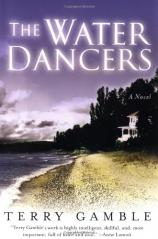Reading Group Guide
Discussion Questions
The Water Dancers: A Novel

1. What is the significance of the title The Water Dancers? What role does water -- especially Lake Michigan and Horseshoe Lake -- play in the novel? In what ways is dance important to the story?
2. What are the most significant differences between Native American culture and white upper class culture, as they are dramatized in the novel? What does each culture value most? How do Mrs. March and Rachel regard each other?
3. When Woody, Mrs. March, and Elizabeth are assaulted by the smell of rotting fish on the shore, Elizabeth suggests they move inside, but Woody says: "You can't get away from it." To which Elizabeth replies: "Oh, Woody … we can always try" [p. 157]. What does this exchange reveal about Woody and Elizabeth? In what other instances in the novel do characters try to deny, ignore, or get away from unpleasant realities?
4. Why are stones and dirt so important in The Water Dancers? Why do Rachel and Ben like to taste them? What can taking dirt into one's mouth offer one at the moment of death?
5. Why isn't Woody able to defy his mother and marry Rachel instead of Elizabeth? What social and racial taboos would he have had to break in order to do so? Do you think Woody should have chosen Rachel? How would his life have been different if he had?
6. Why does Rachel conceal from Ben his father's true identity? Why does she later reveal it? Does she make the right choices in both cases?
7. Rachel thinks that Woody was "so beaten down by the aftershock of war that nothing could free his spirit" [p. 271]. Is she right? What other forces contribute to his misery? How do all the wars -- WWII, the Korean War, the Vietnam war -- affect the characters in the novel? Why isn't Rachel's love enough to save him?
8. Honda asks Ben if he knows what the Indians used to call America before the white man came. When Ben shakes his head, Honda says "Ours!" [p. 135]. At the very end of the novel, Rachel reflects that both she and Lydia March "cleave to our land. We're afraid we can't hold it, but we believe we must. Ours. Ours. What a ridiculous notion. Not even our children are ours" [p. 274]. What does she mean? In what ways does the novel itself call into question the very idea of ownership? In what ways is this recognition that we can't own anything liberating?
9. At the end of the novel, Rachel feels a sudden and "uninvited" compassion for Mrs. March. She is able to sit by her in "companionable silence, forgetting for a moment that they were from different tribes" [p. 266]. Why are Rachel and Mrs. March able to forgive each other at the end? Is Rachel right to give Mrs. March the morphine she asks for?
10. What does the novel as a whole say about the large themes of forgiveness and redemption, love and hate, race and class in America?
The Water Dancers: A Novel
- Publication Date: May 25, 2004
- Paperback: 288 pages
- Publisher: Harper Perennial
- ISBN-10: 0060542675
- ISBN-13: 9780060542672







